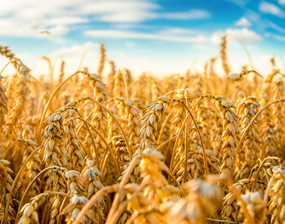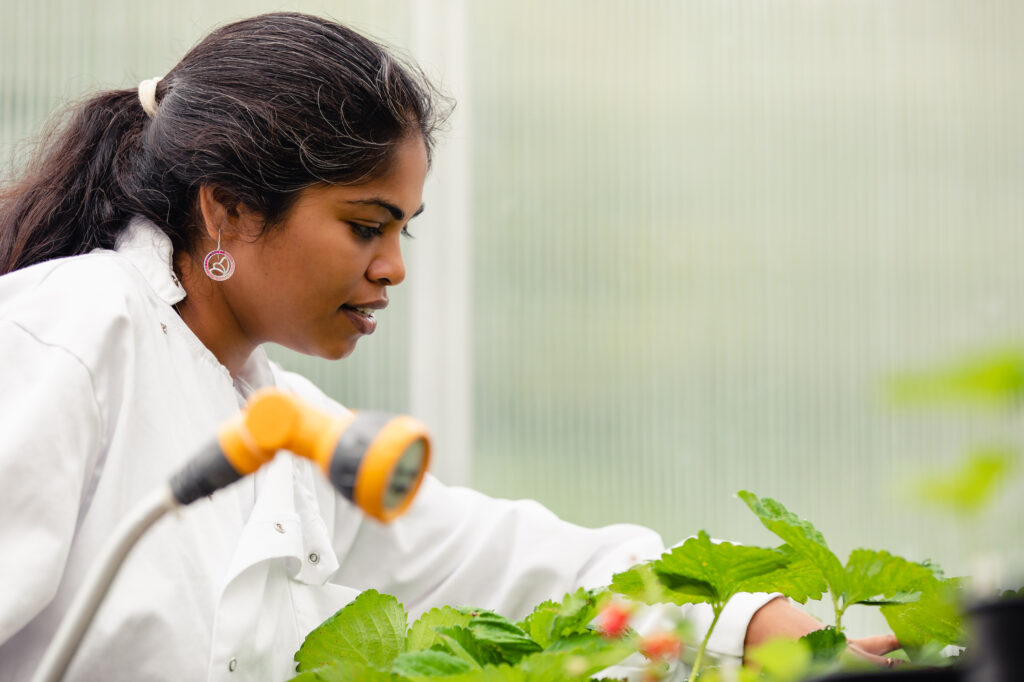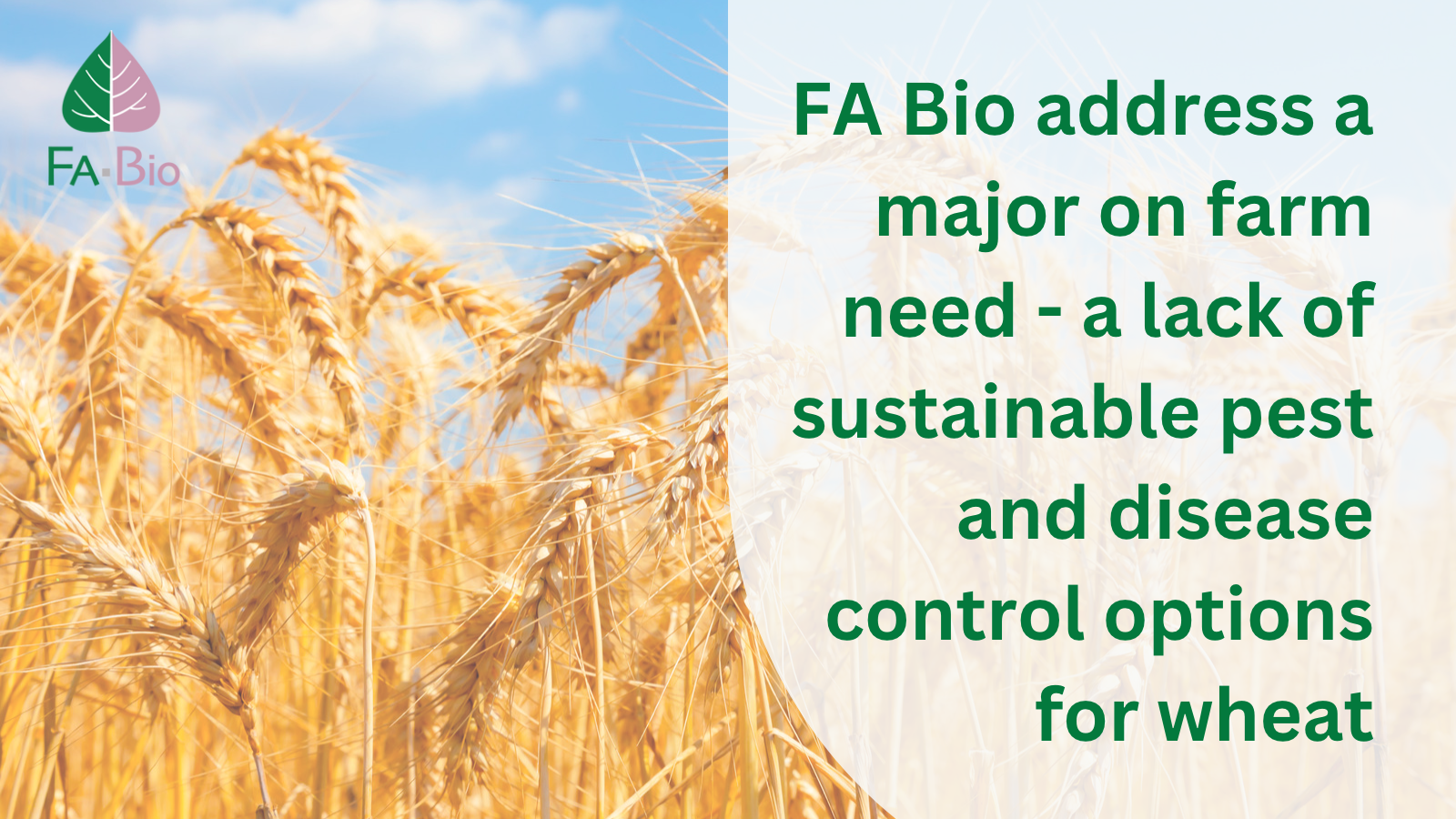
FA Bio, the revolutionary agriculture microbial discovery and development company, is awarded funding to develop a multiple action biopesticide using native soil and plant inhabiting fungi, to protect against both insect pests and diseases. By introducing game-changing innovation to the UK cereal farming industry, FA Bio aims to provide significant benefits for farmers, reducing costs, crop losses and reliance on chemical pesticides.
Wheat is one of the most commercially important crops in the UK, but yield is constrained by fungal diseases and insect pests, causing up to 40% loss in wheat crops (Girvin,2017). Current control methods rely on synthetic chemical pesticides, but regulatory constraints and increasing resistance levels drive the urgent need for new solutions. UK cereal farmers are under increasing pressure to reduce their use of chemical pesticides and adopt more environmentally sound approaches, yet alternatives still need to be made available. Chemical pesticides bring issues of target resistance, human exposure and biodiversity loss, but safe, affordable and practical alternatives are simply not in the market.
This funding from the Farming Innovation Programme, delivered by Innovate UK, will support FA Bio’s project to address a major on-farm need, which is a lack of sustainable pest and disease control options for wheat. The collaborative project being led by FA Bio, in partnership with CABI and CHAP, brings together partners from research and industry to develop a novel dual-action biopesticide, which will provide a new, sustainable and effective pest control product for farmers. The project will use fungi isolated by FA Bio from UK soils that have already been identified as potential biofungicides through laboratory and glasshouse trials and characterised by DNA sequencing. It will focus on establishing the potential of these isolates as bioinsecticides and identify which strains are compatible with industry-standard mass production processes for biopesticides.

The focus of the project will initially be to target the UK market, where there is an urgent need for non-chemical pest and disease control in cereals. Commercialisation of a biopesticide typically takes 5-7 years in the UK however, this project will enable more rapid commercialisation by innovatively utilising UK native fungi that are already in commercial development by FA-Bio, selecting fungi based on prior research and producing data to support the commercial development of a dual-action biopesticide. This project will strengthen the UK’s position as a leader in sustainable agriculture and support Government initiatives to increase UK food productivity whilst minimising harmful environmental impacts.
Dr Angela de Manzanos Guinot, CEO and Co-Founder of FA Bio, said: “FA Bio is proud to be supported by the Farming Innovation Programme to develop a novel dual-action biopesticide product. This product will increase UK wheat productivity by reducing the yield loss associated with pests and diseases whilst increasing sustainability and reducing its environmental impact. In reducing the dependency on synthetic chemical pesticides with a negative impact on biodiversity, soil health and human health, we can also reduce the high levels of GHG emissions associated with their production and applications, contributing to net-zero emission goals. Through our engagement with farmers, agronomists, and other industry stakeholders as part of this project, we can encourage the use of biopesticides and increase the resilience of the UK food system while improving biodiversity. By improving the sustainability of farming and supporting increased food security, we are protecting the natural ecosystems we need to sustain life.”


